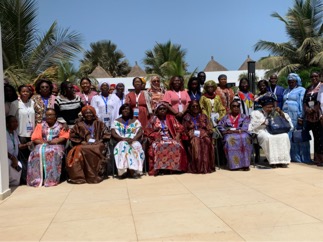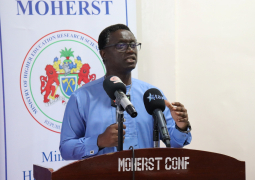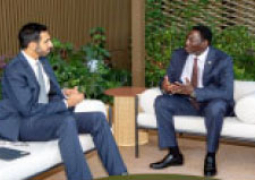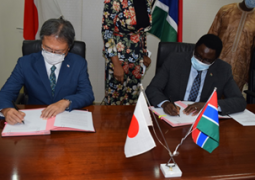
The two-day forum, organised under the auspices of the Minister of Gender, Children and Social Welfare, is led by Adjaratou Wakha Aidara Ndiaye, Director of Partners West Africa, in collaboration with the Gambian authorities and the African Centre for Human Rights and Democracy Studies (ACHDRS).
The workshop aims to address critical issues and promote strategies to enhance women's roles in peace building, security, and social cohesion across the region.
The forum would foster networking among decision-makers and stakeholders to effectively implement women's resolutions on peace and security, using evidence-based data for informed decision-making.
The workshop featured a high-level panel of women ministers and their representatives from Senegal, Guinea Conakry, Mauritania, Guinea-Bissau, Cabo Verde, and Chad. The panel focused on the theme of “women, youth, peace, and security” in the ECOWAS and Sahel regions.
Additionally, the workshop would draft a joint statement for unified advocacy to be presented to states, technical and financial partners, regional institutions (ECOWAS, AU), and leaders of civil society organizations and women’s rights.
In her welcoming statement, Hanna Foster, Executive Director of ACDHRS, highlighted the issue of unconstitutional coups that have plagued Africa in recent years, which are among the key topics for discussion.
She emphasised that discussions about society should encompass both men and women, and that women should share equal responsibility in societal and conflict management roles.
She also pointed out that since independence, women have rarely held even 10 percent of parliamentary seats, attributing this disparity to cultural norms that dictate women should not lead. Addressing these cultural norms is crucial for achieving greater inclusion and representation of women in society, she added.
The Chairperson of the National Women Council, Isatou Dea Sawaneh, remarked that the topic of discussion speaks for itself, emphasising the importance of women's participation in all aspects of economic and family life. In The Gambia, she noted, all past and current presidents have agreed that women's participation is crucial.
However, she questioned why women still lag behind despite this recognition. Sawaneh observed that while some opportunities are given to women, they are not sufficient, leaving women behind despite being the majority.
She highlighted the paradox that women, who are instrumental in electing leaders, are not voting for themselves into leadership positions. She urged her fellow women to unite, step forward, identify the challenges they face, and work together to find solutions. Additionally, she called on Gambians to prevent the National Assembly from repealing the FGM law, stressing its importance for everyone’s well-being.
“Gender Based Violence is on the rise in the country and that we have laws but implementation is the problem,” she said. “The Gambia is on the hot seat amid a current discussion about repelling the FGM laws. We are currently on the battle about the FGM. God forbid, if the laws are repealed, it will affect the country and take us backward.”
Pr Ajaratou Wakha Aidara Ndiaye, the Executive Director Partners West Africa Senegal, spoke at length on the significance of the forum, calling for more women participation in the decision-making process within the continent. "There is need to have women and children in the decision making process within the region so that they advance the betterment of women and children and address issues affecting them," she added.
The support of civil society organisations, she said, is crucial towards women empowerment, adding: "There is huge gap when it comes to women empowerment, thus there is need for us to come together and strategise in order to ensure that women are represented at the decision making process.
"We need to do more advocacy with a view to supportting the promotion and development of women. We also need to come out with resolutions and advocate for women empowerment, especially countries where there is problem. The political will from our respective governments is also needed."
The Minister for Women, Children, and Social Welfare, Fatou Kinteh, stated that ECOWAS member states have made significant strides in promoting and implementing the National Action Plan for United Nations Security Council Resolution 1325 on Women, Peace, and Security.
She further indicated that ECOWAS member states would continue to adopt measures to strengthen women’s full participation in electoral processes, incorporate a gender perspective in all peacekeeping efforts, and increase the number of women in the security sector.
Achieving these goals would require a concerted effort from both state and non-state actors, she noted.




